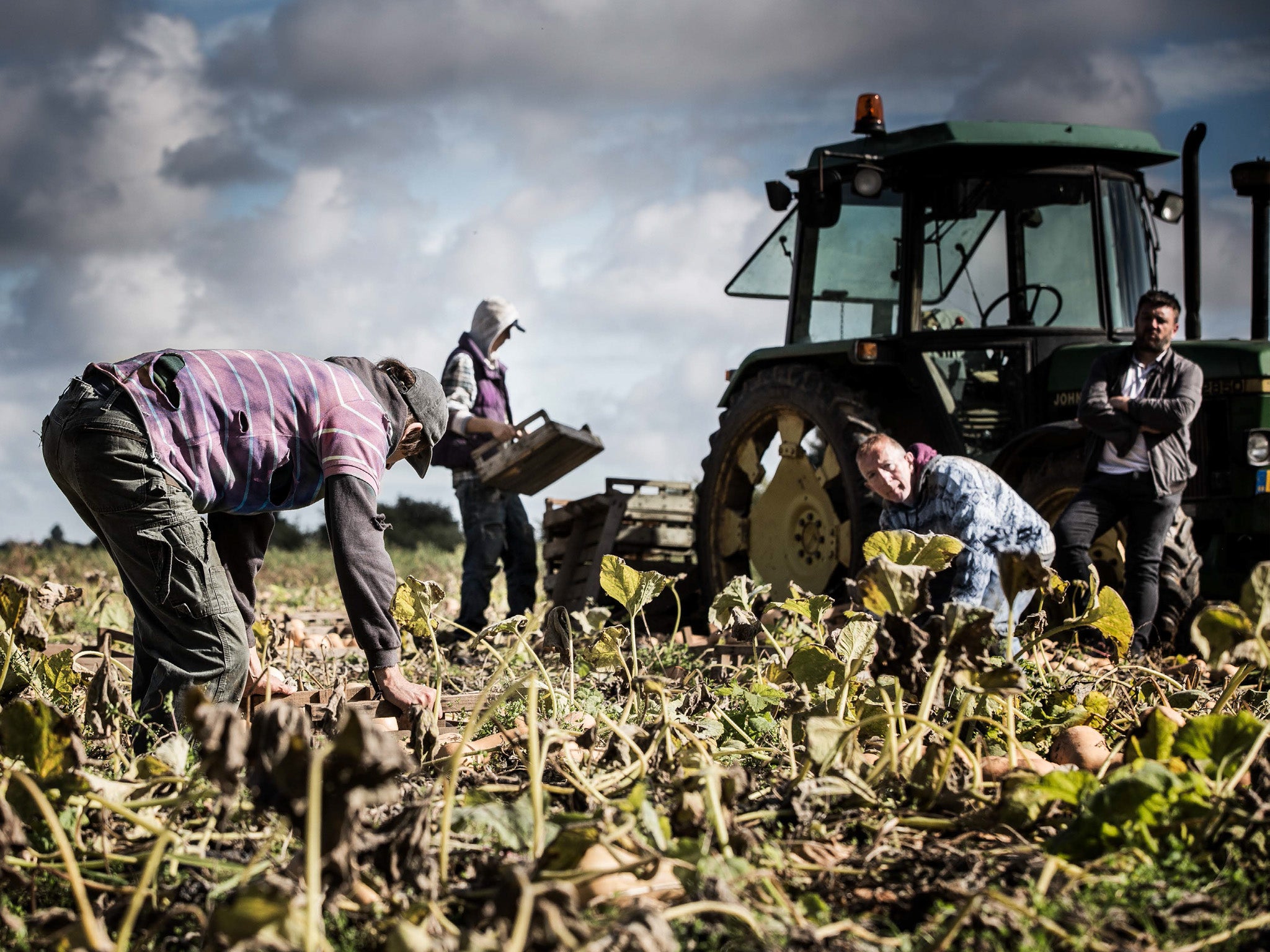
British farms and supermarkets could tackle the exploitation of fruit and vegetable pickers by paying their travel and visa costs, according to a government-commissioned report.
The report, undertaken for the Department for Environment, Food & Rural Affairs (Defra), follows growing allegations of mistreatment of migrant workers on the seasonal worker visa, including a legal challenge brought by an Indonesian fruit picker against the UK government for human rights breaches.
Tens of thousands of workers come to the UK every year on a six-month visa from as far as Chile and the Philippines, and some accrue thousands of pounds of debt before they arrive, leaving them vulnerable to exploitation.
The potential policy runs counter to tough new immigration rules announced by Sir Keir Starmer that make it harder for workers and students to come to Britain. But it would bring the UK closer in line with other countries, such as the United States, where employers are required to bear the costs of workers’ recruitment and travel.
Currently, a handful of operators are licensed by the Home Office to recruit farm labourers and can issue a certificate of sponsorship that can be used to secure a seasonal worker visa from the Home Office. But the workers are left to pay for it and for the cost of travel to the UK.
Commissioned by Defra the study into the “Employer Pays Principle”, seen by The Bureau of Investigative Journalism and The Independent, proposes four alternative options to government, which would see recruiters, farms, retailers and consumers bear the costs instead.
In response to this story, a Defra spokesperson said the government “has no plans to impose the Employer Pays Principle for seasonal workers”, but The Independent understands the government will review the study and consider learnings alongside industry partners.
In the first proposed model, recruiters would have to cover the costs upfront and would then charge farms higher fees for the service. In the second option, recruiters would still cover the costs, but they could then apply to a government or industry fund to be reimbursed. In the third, the worker would cover their costs, but then be reimbursed on arrival to the UK. In the fourth, the costs covered by the recruiters would be passed on in full down the supply chain, via farms and supermarkets, to consumers.
The study, written by consultancy Alma Economics, estimates a range of £850-£1,500 that would be paid by employers for each worker on the seasonal workers’ scheme.
It also estimates fruit and vegetable growers will face the highest financial cost from options one and three. The first model could result in 70 out of 827 farms experiencing losses, compared to 43 in the second proposal, 57 for option three, and zero for the final scheme.
Consumers would pay between one and three pence per week more for fruit and vegetables picked under the scheme, the research estimates. Making the employer pay for the recruitment would cost £43.1m in total and eliminate debt for 18,200 workers.
The research cites a report which said 70 per cent of workers on the scheme had accrued debt to come to the UK.
One seasonal farm worker, Elize*, has been travelling from South Africa to work on British farms for several years. She has often had to borrow nearly £2,000 from acquaintances to cover her travel and visa costs, at times being charged interest rates of around 20 per cent.

She says not having to pay travel and visa costs would help her get out of a cycle of having to choose between taking on high-interest loans or barely eating throughout the year in order to save enough to afford flights to the UK.
The report, which consulted supermarkets, farmers and recruiters, said that stakeholders supported making operators cover the costs and then pass them down the supply chain.
While the study said farmers were reliant on the seasonal worker scheme because they believed “UK workers often lack the skills and motivation” needed to pick fruit and vegetables, they largely opposed overseas workers having their recruitment costs covered.
Many worried it would threaten “worker commitment”, since the current system provides “strong incentives to work hard” to clear debts.
However, most retailers were in favour of introducing the employer pays principle, as were some scheme operators, the report said.
Meanwhile, worker representative bodies and human rights organisations welcomed the proposals but thought wider reforms were needed to ensure it improved worker welfare.
Eleanor Lyons, the government’s independent anti-slavery commissioner, called on the government to act and highlighted the increased vulnerability of these workers.
“This has an incredibly detrimental impact on the victims who can be forced to work excessive hours, trapped in debt bondage, and in incredibly challenging conditions,” she said. “The government needs to act now to provide more protection for seasonal workers; the risks to them are clear and there must be more safeguards.”
A National Farmers Union spokesperson said: “The NFU is aware that Defra is conducting a study modelling the economic impacts of the Employer Pays Principle. This is part of a larger agriculture sector-wide ongoing discussion on enhancements to seasonal worker welfare in the UK. Seasonal workers are of the utmost importance to the production of UK food, fruit and vegetables in particular.
“We look forward to the publication of the review so we can assess the detail in full.”
*Name has been changed
Reeves and Starmer face cabinet revolt over spending review
Police warn Starmer of ‘stark choices’ on investigating crimes if faced with cuts
Al Qaida terrorists tried to poison UK water supply, says ex-security minister
Meghan Markle shares rare photo of Lilibet to mark daughter’s fourth birthday
Singer Jessie J reveals she has been diagnosed with ‘early breast cancer’
Trump spares UK from new tariffs but White House warns relief is conditional: Live







